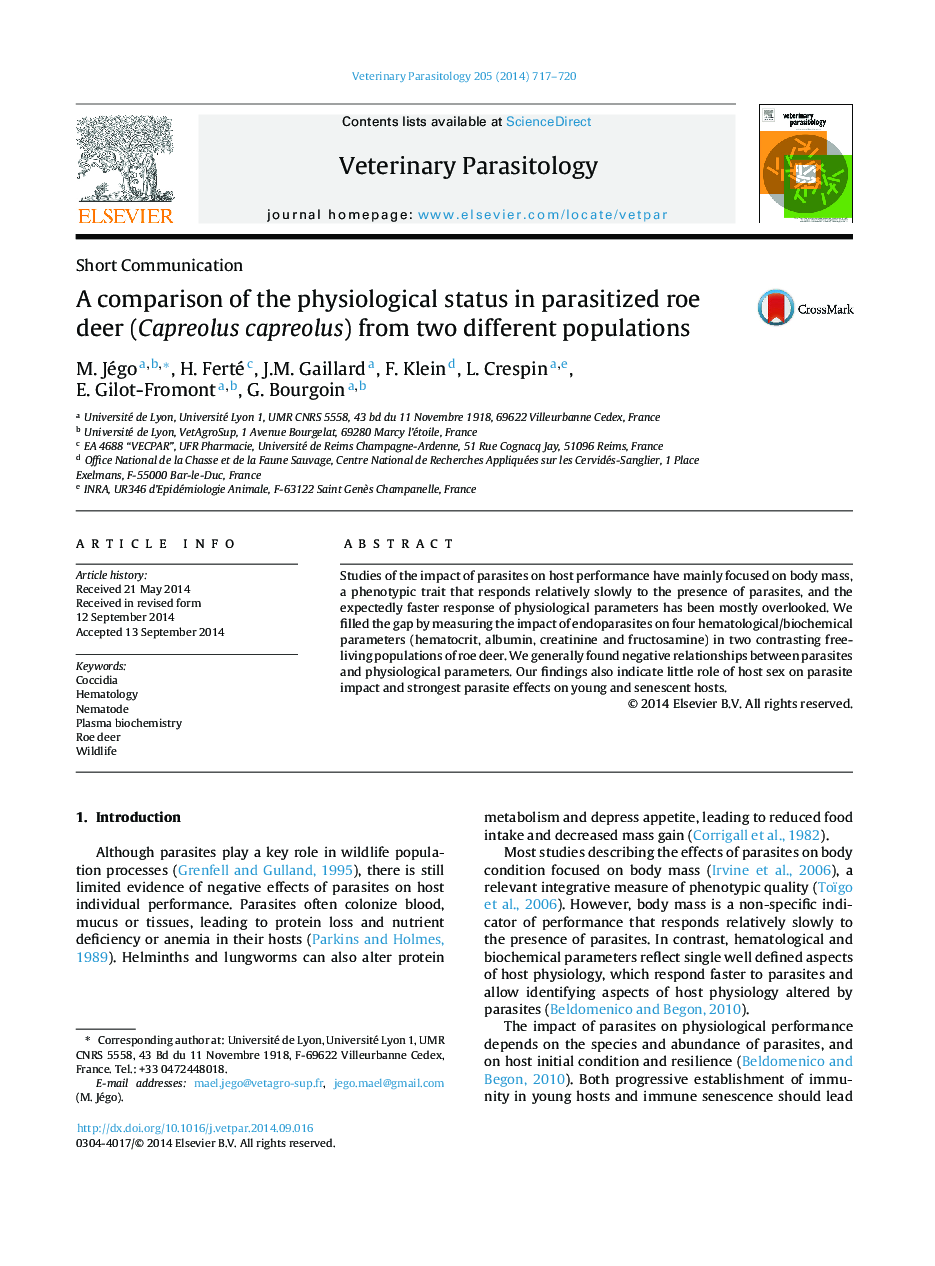| Article ID | Journal | Published Year | Pages | File Type |
|---|---|---|---|---|
| 5803119 | Veterinary Parasitology | 2014 | 4 Pages |
â¢The impact of parasites on wildlife population dynamics is well documented, but our knowledge about their impact on host physiology is currently limited.â¢Unique study of the impact of endoparasites (pulmonary, gastrointestinal nematode, coccidia) on hematological/biochemical parameters (hematocrit, albumin, creatinine and fructosamine) in the wild.â¢Negative correlation between parasites and roe deer physiological parameters, except for albumin.â¢Impact of parasites particularly pronounced in young and senescent individuals.â¢Little support for a different impact of parasites according to sex or to environmental conditions.
Studies of the impact of parasites on host performance have mainly focused on body mass, a phenotypic trait that responds relatively slowly to the presence of parasites, and the expectedly faster response of physiological parameters has been mostly overlooked. We filled the gap by measuring the impact of endoparasites on four hematological/biochemical parameters (hematocrit, albumin, creatinine and fructosamine) in two contrasting free-living populations of roe deer. We generally found negative relationships between parasites and physiological parameters. Our findings also indicate little role of host sex on parasite impact and strongest parasite effects on young and senescent hosts.
